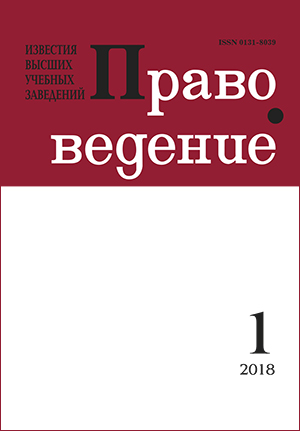Сoncept and criteria for forced dismissal
DOI:
https://doi.org/10.21638/11701/spbu25.2018.107Abstract
The work is devoted to the study and solution of the problem of the concept of “coercion” when terminating an employment contract. Currently, neither the legislation nor the court practice know, what exactly is meant by “compulsion” when the employee makes a decision to terminate the employment contract with the employer. The work consistently proves that the approaches used to this phenomenon are not universal and do not offer recipes for the analysis and resolution of all possible situations. The author found that when ascertaining whether there was coercion to dismissal or not, it is not a matter of “violence against the will”, but of creating a special situation of choice. This means that the wrong one is “wrong” to the “forced” deal, and one in which one of the counterparties artificially created a situation in which the other party to the transaction should choose between known losing strategies and return to the point before the appearance of this choice, he can not. The paper proposes four formal-logical models for determining whether the proposed choice is knowingly losing or not with a formally legitimate threat (that is, when the realization of a threat is not an act that is prohibited by law). It also offers an exhaustive explanation of why the victim, under a formally wrongful threat, always chooses between knowingly losing strategies. The developed models are applied by the author to eight hypothetical situations of compulsion to dismissal to illustrate their practical applicability. Also, the work considers possible exceptions from the scope of the proposed models.
Keywords:
termination of the employment contract, threat, coercion, forced dismissal, violence, deals, vice of will
Downloads
References
Downloads
Published
How to Cite
Issue
Section
License
Articles of "Pravovedenie" are open access distributed under the terms of the License Agreement with Saint Petersburg State University, which permits to the authors unrestricted distribution and self-archiving free of charge.




